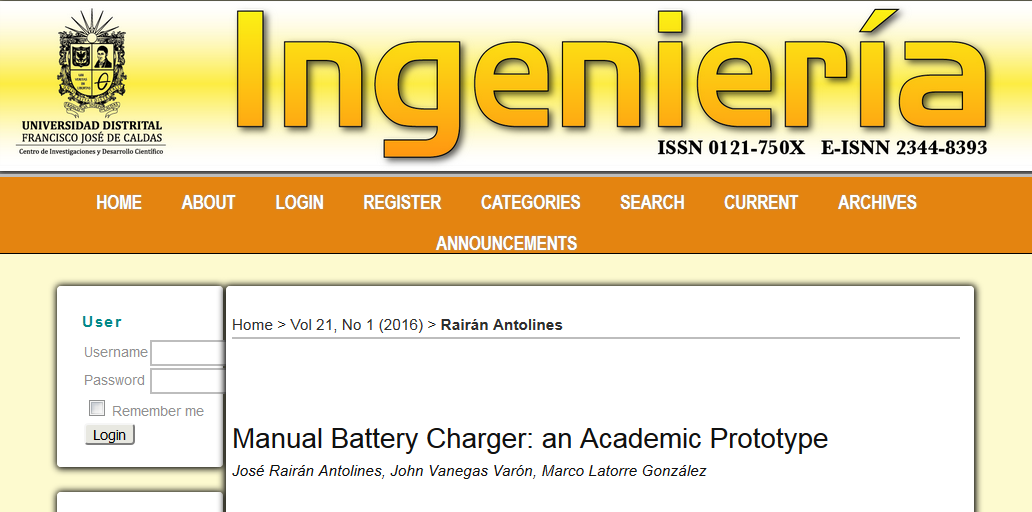Ingeniería, ISSN: 0121-750X, vol 21, No. 1, Abr 2016, pp. 83-95. Vanegas, J.S., Latorre, M. A., & Rairán J. D.
doi: 10.14483/udistrital.jour.reving.2016.1.a06
Context: The building process of a manual charger allows designers to guarantee an output power, but the efficiency of the process usually remains unknown. However, in the current context of preoccupation for the climate change, the selection of a device should regard the efficiency value.
Method: This paper presents the input and output power estimation, as the efficiency computation requires. These estimations involve approximating angular speed and torque in a hand crank, as well as voltage and current in the battery, which depends on an experimental procedure and the use of a circuit designed for that purpose.
Results: The design and building of a prototype allow authors to present an example of the efficiency measurement, which resulted in an input power approaching 12 W, whereas the output power is 3 W, thus the efficiency approximates 25%.
Conclusions: The proposed method of measurement enables the estimation of efficiency for manual battery chargers. Thus, future works can focus efforts on improving the design of the chargers in order to increase the efficiency value.
